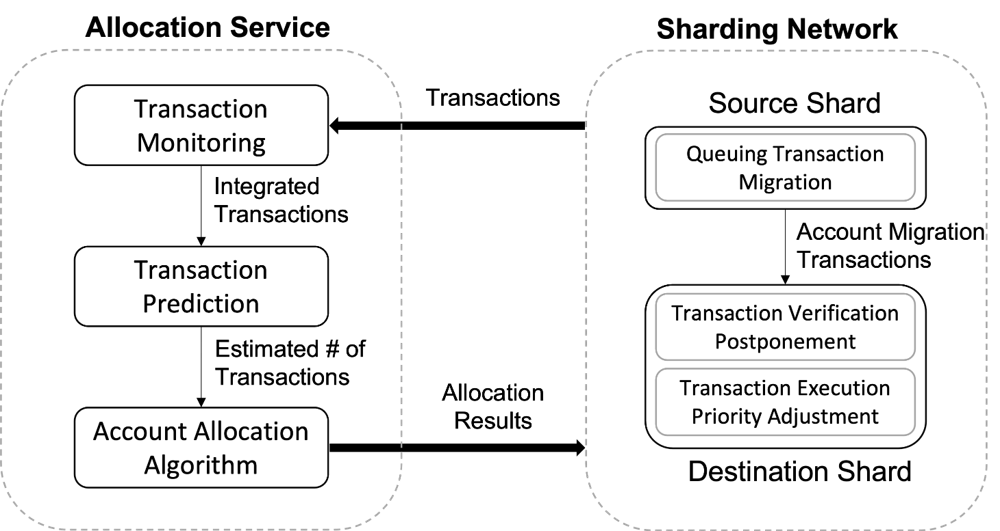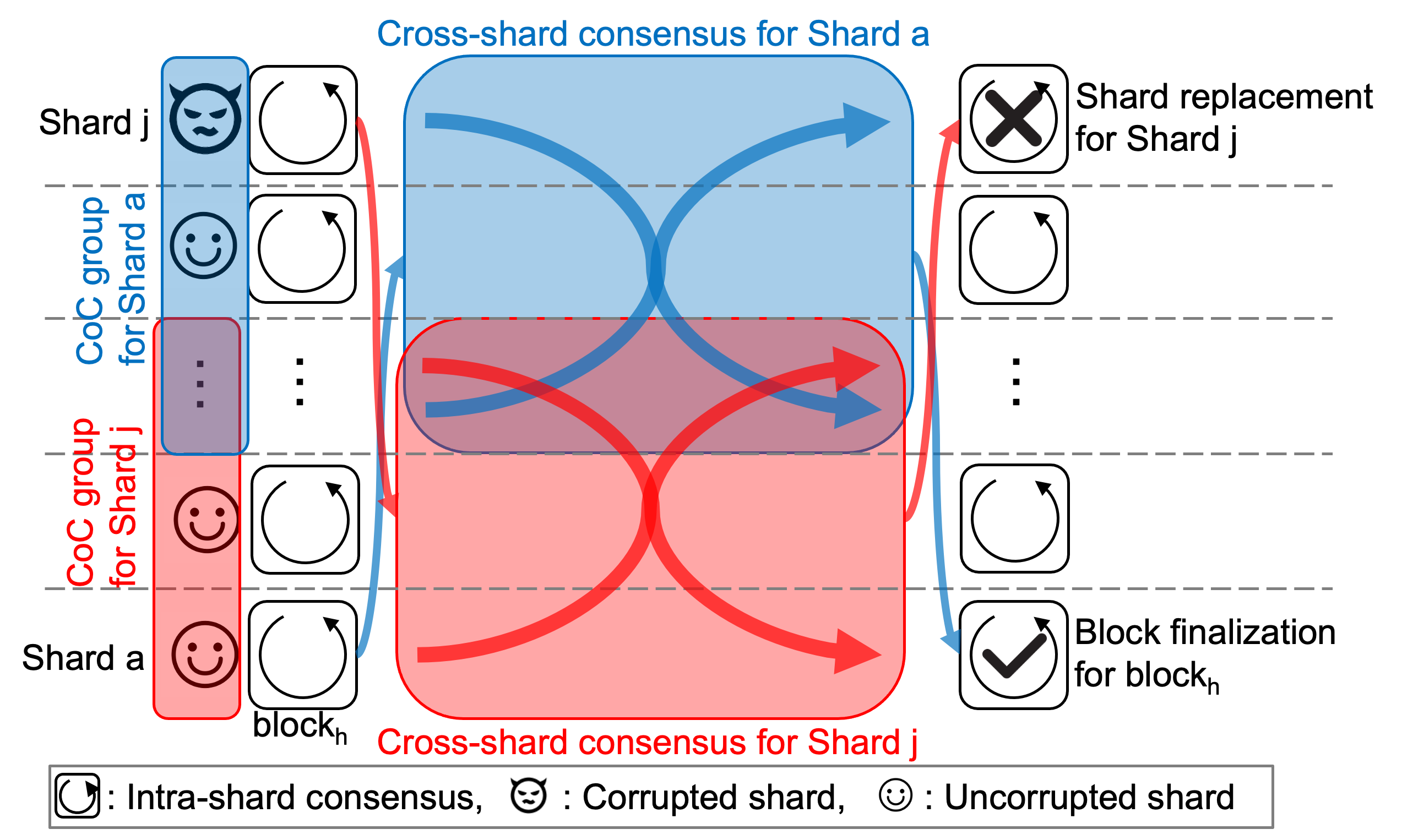LB-Chain: Scalable and Load-Balanced Blockchain Sharding via Account Migration
Most existing blockchain sharding systems suffer from load imbalance, which affects overall performance. To achieve load balance among shards, we use ML to predict load variations for each shard and dynamically allocate accounts through secure and efficient cross-shard account migration. Download PDF





